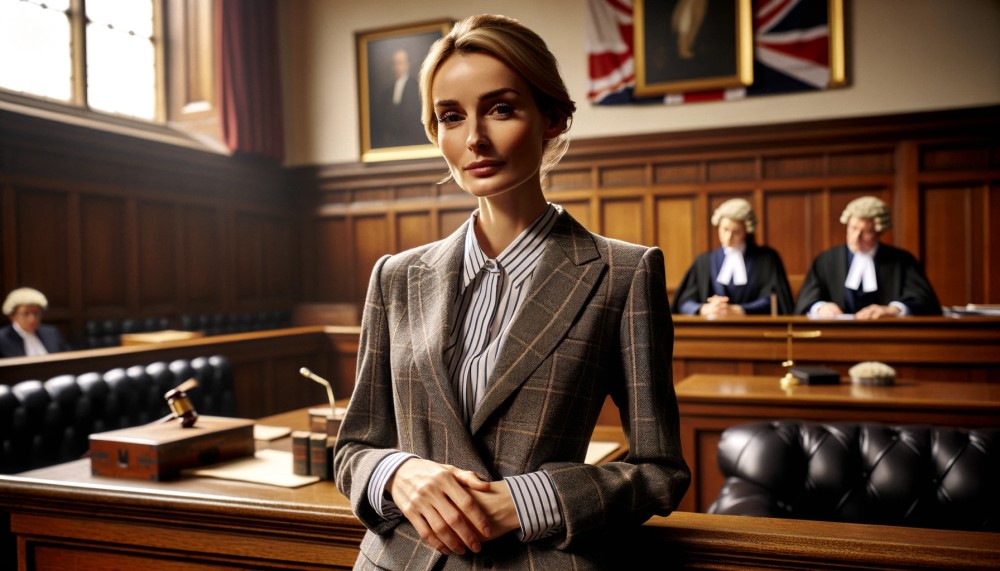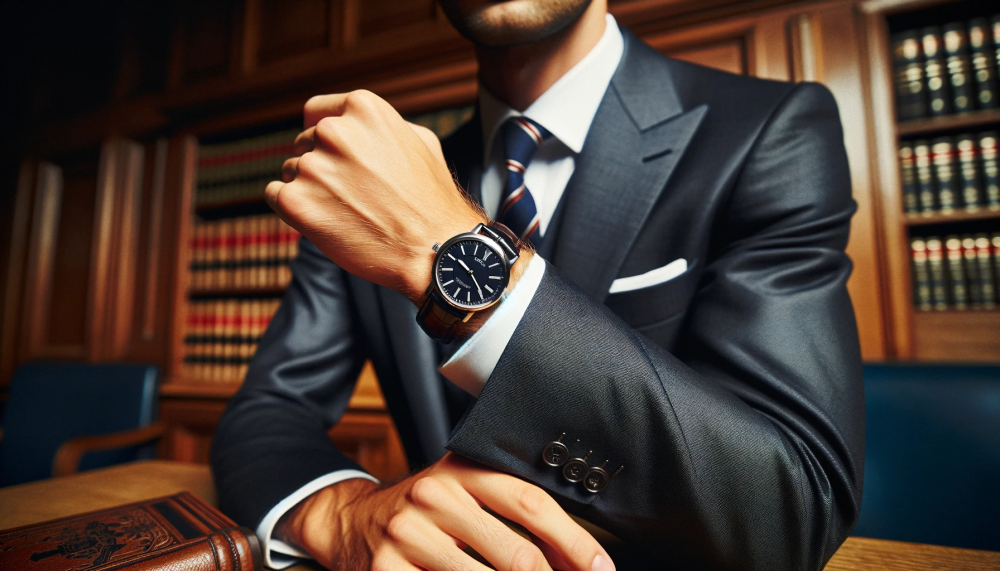The Courtroom Attire and Etiquette in England: A Guide to Making a Respectable Impression
Navigating the English legal system’s formalities extends beyond procedural and legal knowledge; it encompasses the very manner in which one presents oneself in court.
The necessity for appropriate courtroom attire and etiquette is critical, as they reflect one’s regard for the judicial system and the gravity of the legal proceedings. This guide offers comprehensive insights into the sartorial and behavioural expectations within English courtrooms, ensuring that individuals stand in good stead before the bench.
Appropriate Courtroom Attire

The sanctity of the English courtroom upholds a dress code that bespeaks professionalism and respect. For gentlemen, this traditionally means a dark-coloured suit paired with a subdued tie, signifying solemnity.
Smart trousers and a crisply ironed shirt complete the ensemble, complemented by polished formal shoes. Ladies are similarly expected to adhere to a conservative fashion sense, donning attire such as tailored suits, knee-length skirts, or dresses paired with modest blouses.
Footwear should be formal, favouring simplicity and refinement over ostentation. Accessories should be kept to a minimum, and personal grooming is to be given due attention, ensuring a neat and orderly appearance.
Courtroom Manners in England
Conduct within the halls of justice is governed by centuries-old traditions that command respect and orderliness. Upon entering the courtroom, one is to adhere to a conduct befitting the solemnity of the institution. This involves silencing or turning off all electronic devices to prevent disruptions.
Consumption of food or beverages within the courtroom is strictly prohibited, as is any form of behaviour that might distract from the legal deliberations at hand.
Interactions with court officials, legal counsel, and judges should be marked by formal politeness; for instance, judges are to be addressed with the appropriate honorifics and acknowledged with due reverence when they enter or exit the courtroom.
Key Points to Remember

Presentation and punctuality are not mere courtesies but essential aspects of courtroom proceedings. The attire should be impeccable, avoiding any semblance of casualness.
One’s punctuality evidences a respect for the court’s time and reflects an understanding of the importance of the proceedings.
A well-presented individual demonstrates meticulousness and an appreciation of the court’s formality, potentially contributing to the credibility of their character in the eyes of the judiciary.
The Impact of First Impressions
The adage that ‘first impressions last’ is profoundly true within the judicial environment. The court’s initial assessment of an individual can be subtly influenced by their attire and comportment.
An appearance that embodies professionalism and a demure, respectful demeanour can sway the ambience of the courtroom in one’s favour.
Such an impression might not only facilitate a smoother judicial process but could also subtly underpin the merit of one’s position in legal disputes.
Conclusion: Final Thoughts on Proper Courtroom Attire and Etiquette

Adhering to the prescribed decorum for attire and behaviour in English courtrooms is not a trifling matter. It stands as a testament to one’s respect for the law, the legal institution, and the solemnity of judicial proceedings.
For those who present themselves appropriately, the courtroom becomes a theatre of dignity and order, where the scales of justice can weigh matters without the undue influence of improper presentation.
Thus, proper preparation for a court appearance is an indispensable facet of legal strategy and personal conduct.
Thank you for reading this post, don't forget to subscribe!
Notice: Informational Content Disclaimer
The content provided on this website, including articles, blog posts, and other informational materials, is intended for general informational purposes only. It is not intended as, and should not be considered, legal advice.
Visitors to this website should be aware that the information presented here is not a substitute for seeking legal advice from a qualified solicitor or legal professional. Each individual's legal situation is unique, and the information provided may not be applicable to specific circumstances.
If you require legal advice or have specific legal questions, we encourage you to contact us directly. Our experienced team of solicitors is here to assist you with your legal needs and provide tailored advice to address your concerns.
Please be advised that any communication through this website, including the use of contact forms or email, does not create a solicitor-client relationship. Confidential or time-sensitive information should not be sent through this website. To establish a solicitor-client relationship and discuss your legal matters in detail, please contact us for a consultation.
We strive to provide accurate and up-to-date information, but we make no representations or warranties regarding the accuracy, completeness, or suitability of the information contained on this website. We shall not be liable for any reliance placed on the information provided herein.
Thank you for visiting our website. We look forward to the opportunity to assist you with your legal needs.




